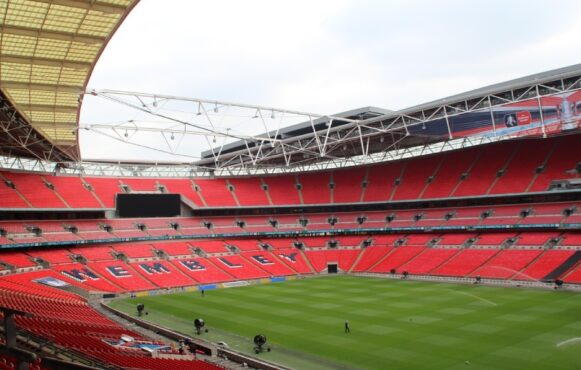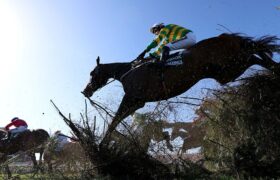The Online-Casinos.com News in 2026
Welcome to the news hub of Online-Casinos.com. Here we cover all the latest developments concerning online gambling. Our news team will bring you current updates about legislation, casinos, sports, poker, as well as expert analysis and fun trivia from across the gambling industry.
Unlicensed companies could be prevented from signing sports team sponsorship deals in the UK. Key Facts: UK Government plans to end sports sponsorship deals with unlicensed companies Some unlicensed companies have ongoing deals with Premier League clubs Being sponsored by a company without a licence is allowed by the UKGC...
12 Pots of Gold Drum Frenzy is the latest of the new slots from Gameburger,...
UK online casinos are soon getting the latest of Stormcraft Studios’ new slots, Thunderstruck Stormblitz,...
Formula 1 is set to slip into gear starting with the release of Netflix docuseries...
A Cloudflare outage has caused a costly service disruption for bet365 and other UK-facing online...
One of Gaming Corps’s new online slots for 2026 is Whole Lotta Honey. Themed to...
New X rules mean advertising and promoting gambling on its social media platform has become...
The World Series of Poker returns to the Las Vegas Strip on May 26 with...
I Am Maximus, Nick Rockett and Banbridge head the weights for the 2026 Randox Grand...
Suck is a new Shady Lady slot with a maximum payout of 20,000x and an...
Play’n GO releases the latest of its new slots at UK online casinos, with pirate-themed...
Slingshot Studios is releasing a sequel to the popular Wacky Panda slot game at UK...
UK online casino players who enjoy some hot food-themed fun are likely to enjoy the...
 Sports Sponsorship Deals Only for Licensed Gambling Companies
Sports Sponsorship Deals Only for Licensed Gambling Companies
 Gameburger’s 12 Pots of Gold Drum Frenzy Set for Release
Gameburger’s 12 Pots of Gold Drum Frenzy Set for Release
 Stormcraft Studios’ New Slot Thunderstruck Stormblitz Out Now
Stormcraft Studios’ New Slot Thunderstruck Stormblitz Out Now
 F1 Is Back, Starting With Netflix’s Drive to Survive on Friday
F1 Is Back, Starting With Netflix’s Drive to Survive on Friday
 Leading UK Betting Site Suffers From Costly Friday Downtime
Leading UK Betting Site Suffers From Costly Friday Downtime
 Start Playing the Whole Lotta Honey Slot on 19 February
Start Playing the Whole Lotta Honey Slot on 19 February
 Gambling Paid Partnerships and Collaborations Banned on X
Gambling Paid Partnerships and Collaborations Banned on X
 100 Gold Bracelets up for Grabs at World Series of Poker 2026
100 Gold Bracelets up for Grabs at World Series of Poker 2026
 Maximus Gets the Max as Grand National Weights Are Revealed
Maximus Gets the Max as Grand National Weights Are Revealed
 Play the New Suck Slot from Shady Lady on 19 February
Play the New Suck Slot from Shady Lady on 19 February
 Play’n GO Set to Release New Slot Sails of Riches
Play’n GO Set to Release New Slot Sails of Riches
 Slingshot Studios Set for Wacky Panda Power Combo Release
Slingshot Studios Set for Wacky Panda Power Combo Release
 PearFiction Studios Prepares For 4 Spicy Frenzy Slot Release
PearFiction Studios Prepares For 4 Spicy Frenzy Slot Release